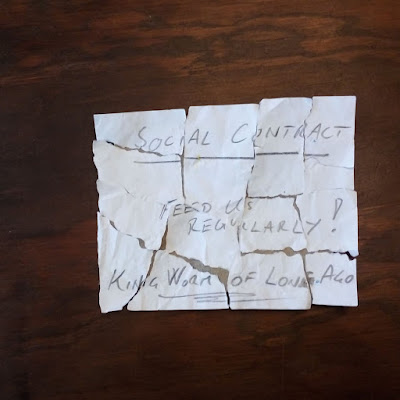I watched the coronation of king Charles III on TV on Saturday. It was a longwinded affair with much pomp and circumstance, so I watched it only with half an eye. I don't think I missed much by not watching every minute of it.
Most people interviewed in the streets were enthusiastic about the event, but some were against it. They held up #NotMyKing signs and shouted angry slogans, which reminded me of the #NotMyPresident signs people waved about after Trump's victory back in 2016.
While it's understandable that people find a coronation ceremony less than convincing as far as political legitimacy is concerned, I find the #NotMyKing gang no less silly. They have figured out that a king has no legitimate power outside his private domain, but they haven't yet figured out that a president has no legitimacy either. The inauguration of a president is also a mystic affair. It too is void of any support in natural law.
Some of the protesters claimed that England's constitutional monarchy was a form of totalitarianism, which I found particularly stupid. The king has limited powers, and as far as totalitarianism is concerned, we have by now ample evidence that democracy doesn't protect anyone against it. The lockdowns in the West were as totalitarian as it gets, far worse than what was seen in Africa and other supposedly less free places.
What people don't realize is that #NotMyKing and #NotMyPresident movements are types of controlled opposition. The idea behind them is that the state itself is legitimate and that only the figureheads are lacking in legitimacy. People fight each other over figureheads, but the state remains unaffected. The state apparatus doesn't care one way or another as long as it remains intact.
This is the insight expressed in the film The Leopard that I finally got round to watch a few days ago. The aging price is fully aware of the futility in trying to change anything through strife. His only concern is for his family and their assets, and he navigates perfectly through the bloody revolution. While people kill each other over political trivialities in Palermo, the prince moves out of the way. When the dust settles, he returns to his palace. When asked which side he's on, he tells everyone that he's with the majority. He's one of the good guys.
 |
| The social contract |
No comments:
Post a Comment